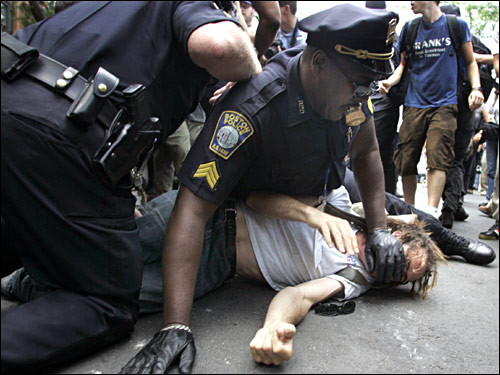Don’t make dumb bets.
We recently read Antifragile, the latest from iconoclast and self-described flâneur Nassim Nicholas Taleb. If you’re unfamiliar with Taleb, he’s most famous for writing the predecessor to Antifragile,a book called The Black Swan. Its main argument is that there are certain events that defy prediction and that you can’t do anything about, other than minimize your risk of exposure to their negative effects (if any) and maximize your risk of exposure to any positive ones. The title derives from the Australian bird of the same name, which Europeans discovered in the late 17th century, thus destroying the part of their worldview that held that swans are definitively white.
This isn’t a review of Antifragile. (Alright, here’s a review: Buy it, then read it slowly and repeatedly.) However, today we are concerning ourselves with one of Taleb’s fundamental recommendations: Put yourself in situations where the potential for a great reward is offset by the potential for a small loss, and avoid the opposite scenarios. If you need a concrete example, Taleb suggests that you should live in a big city. (He lives in New York.) That way you can increase the likelihood of having random encounters with people who can benefit you. Go to enough cocktail parties on the Upper East Side and you’ll find someone who can look at your business proposal, or at least put you in touch with someone who can.
On a macro scale, Taleb cites federal government intervention in the economy that’s always done with the promise of a (modest) benefit, yet invariably ends with (unanticipated, gigantic) costs. Fannie Mae and Freddie Mac will serve as the definitive examples of this until something greater and more destructive comes along. Single-payer healthcare, maybe. The temptation to take the path of least resistance, when resisting can result in disaster, never enters these bureaucrats’ vacuous heads.
Which brings us to a real-world example of our own experience. Last summer, your humble blogger got a speeding ticket. 40 mph in a 35 zone, on a moderately used divided 4-lane road that’s flanked by a series of car dealerships. Shortly after they’d closed for the day. Meanwhile, not 100 yards away on the nearby U.S. highway, several drivers were cruising in the passing lane and thus driving far more dangerously than anyone driving in excess of 5 mph in a commercial zone would be. But we digress.
The ticket is exorbitant. $205, but the very act of going down to the county court house and acknowledging receipt of the ticket will knock it down to $140 and a non-moving violation (i.e., no harm to the driver’s record and no disclosure to the insurer.)
Or we could fight it. Which carries a potential risk and a potential reward. Let’s see what a rational person, or at least a Taleb reader, should do in this situation.
Choose not to go to court, and we’re looking at a certain debit of -$140. So that’s our baseline. Proceed on the most conservative path possible, the equivalent of buying T-bills, and that’s how much we’ll be out. So let’s consider that $140 an all-but-irretrievable sunk cost, and proceed from there. What happens if we fight the ticket? There are 2 possible outcomes:
- Not guilty/case dismissed. Net gain, +$140.
- Guilty. This one’s more complicated. The fine will be for the full amount of the ticket, $205. A guilty verdict also means 1 point on the license, which, as best we can estimate, will result in a 15% increase in premia over the next 3 years. That’s about another $500, ignoring the time value of money. Sum it and that’s a net loss of $565. (Remember that we’ve already accepted that we’re down $140 by doing nothing and paying the reduced fine already offered by the court.)
So by taking the risk of going to court, one of 2 results will happen – a $140 gain, or a $565 loss. Neither of which mean anything without examining our chances in court.
Our case is less than airtight. We did everything you’re supposed to (take video of the crime scene, come up with a list of questions to ask the officer, and then request one continuance after another), but we’ll be going up against an officer who’s so diligent that he went to the trouble of writing the radar gun’s calibration data on the ticket. He’s been on the force for 6 years, has already been an officer involved in an officer-involved fatal shooting, makes 6 digits a year and looks about 19 years old, so the likelihood of him having retired before the court date is slim. If he gets 3 weeks of vacation a year, the chance of the trial happening during one of them is about 6%. If he shows up, we can pencil in an L.
Our research indicates that officers show up for similar cases at least 60% of the time, and we could probably jack that up a few percentage points. So that’s a reduced chance of winning (enjoying a $140 gain), and a substantially greater chance of losing (incurring a $565 cost.) Even a lottery ticket, though its odds are atrocious, offers a huge payoff balanced with a tiny cost. Fighting this speeding ticket offers the opposite.
We’ll be contacting the prosecuting attorney and writing our $140 check tomorrow.




